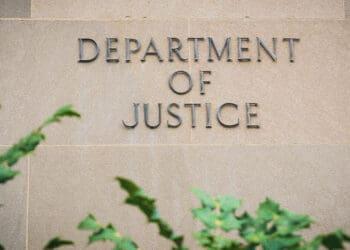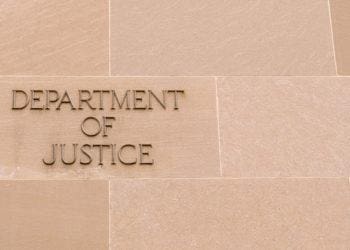The SEC, DOJ and other federal regulators have enhanced their enforcement regimes in recent years with an eye toward national security. Snell & Wilmer attorneys Brett W. Johnson and T. Troy Galan explore a recent FCPA action and offer suggestions for companies engaged in international trade.
Since World War II, international trade regulation has swung between facilitating globalization on one side and addressing national security concerns on the other. After the 2016 presidential election, the pendulum swiftly swung back toward national security. This has led to the increased status of U.S. international regulation. Regulatory agencies have implemented significantly more stringent requirements and enhanced enforcement, primarily in the realm of anti-corruption and exports. In light of this historical shift, companies need to understand the new regulatory implications of engaging in international business.
FCPA
The FCPA is the major (but not only) anti-corruption law in the U.S. The FCPA has two primary components: anti-bribery provisions and accounting provisions. Under the FCPA, it is unlawful to make payments of anything of value to foreign officials in exchange for influence or business opportunities. It also requires that companies with U.S.-listed securities follow FCPA accounting provisions. Companies that violate the FCPA are subject to significant civil and criminal penalties.
As a practical matter, the need to “break bread” in business is a time-honored tradition. However, there are limitations. For example, extravagant business trips and expensive dinners have triggered investigations and substantial penalties even if there was not a direct business advantage that the payor was trying to achieve. Furthermore, attempts to limit liability or risk via third-party agreements, such as consultants or marketing companies, does not insulate companies from liability.
Recent developments
The resolution of Albemarle Corp. self-reported FCPA violations after more than five years with the DOJ and SEC exemplifies the enhanced regulatory environment in the international arena. Albemarle, a publicly traded chemical company headquartered in Charlotte, N.C., with international operations, submitted voluntary self-disclosures (VSDs) of “potential issues relating to the use of third-party sales representatives” to the DOJ and the SEC in 2018. Albemarle submitted these VSDs after an internal investigation spearheaded by outside counsel and supported by forensic accountants.
Due to the DOJ’s and SEC’s overlapping jurisdiction over the FCPA, the resolution to Albemarle’s VSDs entailed two agreements. In the DOJ’s resolution, Albemarle admitted that “through its third-party sales agents and subsidiary employees, [it] conspired to pay bribes to government officials to obtain and retain chemical catalyst business with state-owned oil refineries” in various countries. As a result, Albemarle entered into a three-year non-prosecution agreement in which it agreed to pay the DOJ a $98.2 million criminal penalty and $16.6 million in forfeitures.
Separately, Albemarle consented to an SEC administrative order “finding that it violated the anti-bribery, recordkeeping, and internal accounting controls provisions of the Securities Exchange Act of 1934. Pursuant to the SEC Administrative Order, Albemarle agreed to pay approximately $103.6 million in disgorgement and prejudgment interest. (The original forfeiture amount of approximately $98 million imposed by the DOJ will be offset by the $81.8 million disgorgement payment to the SEC.)
Keeping Track of US Efforts to Stem Corruption at Home & Abroad
Susana Sierra of BH Compliance explores why shifted priorities should cause all U.S. companies with Latin American connections to take note.
Read moreDetailsCase in point
The hefty penalties imposed on Albemarle (totaling almost $219 million) — and the five years needed to reach a resolution — point to the nature and seriousness of the FCPA violations. But they also point to a specific example of the DOJ’s and SEC’s enhanced enforcement as it relates to international trade.
Regulatory agencies have put out significant guidance that reiterates the importance of self-disclosing violations in a timely manner. Notably, while Albemarle’s violations were “voluntarily disclosed to the [DOJ], … the disclosure was not ‘reasonably prompt’ as defined in the Criminal Division Corporate Enforcement and Voluntary Self Disclosure Policy (‘CEP’) and the U.S. Sentencing Guidelines § 8C2.5(g)(1),” the DOJ wrote. As such, the DOJ did not give Albemarle credit for voluntarily disclosing the violations. This type of strict enforcement will also continue to increase internationally, with different governments working collaboratively to enforce each other’s regulations.
Similarly, domestic enforcement in the U.S. continues to increase. Enforcement is taking place on multiple fronts from directed disclosures, subpoenas, or “friendly” site visits where agents appear at facilities or contact employees directly about specific transactions. While the almost $219 million penalty imposed by the DOJ and the SEC on Albemarle is noticeable, agencies have also reinforced that companies will not be able to settle violations without some degree of individual liability, usually reserved for senior management. In Albemarle’s case, the DOJ did provide Albemarle with credit for disciplining employees involved in the misconduct, including terminating 11 employees, and withholding bonuses from 16 others.
The key to anti-corruption compliance is setting collective standards via policies, ensuring proper training on the policies, auditing regularly and providing a mechanism for employees or third-party agents to seek guidance concerning specific activities. Indeed, the SEC noted that “[d]espite repeated and glaring bribery-related red flags, Albemarle failed for many years to implement sufficient internal accounting controls” and that “[t]his failure set the stage for wide-ranging misconduct” resulting in the FCPA violation.
Export controls
The U.S. and allied countries in Europe and Asia also continue to enhance enforcement of ever-expanding export controls. The Bureau of Industry and Security (BIS), an agency of the U.S. Department of Commerce, primarily regulates the export of sensitive goods and dual-use technology.
Among BIS’ most noteworthy recent policy changes, underlining its enhanced and stricter regulatory enforcement, is the publication of administrative charging letters. Previously, administrative charging letters were issued privately to violators and were shared only on a need-to-know basis. Administrative charging letters did become public but not until the violation was completely resolved. Under BIS’ updated policy, administrative charging letters are now made public when filed and easily accessible via BIS’ website. The stated purpose of this change is to spark urgency to upgrade compliance programs and encourage VSDs. Companies should consider monitoring published administrative charging letters to adjust policies and procedures or seek outside counsel on whether a VSD is appropriate based on similar conduct investigated by BIS.
Further, BIS announced the elimination of the “no admit, no deny” settlement agreements. This type of settlement, which is readily used by various government agencies interested in expediting resolutions, traditionally permitted violators to resolve export compliance issues without admitting to the underlying conduct. It is the equivalent of a “no contest” plea in a criminal action. Under the updated policy however, violations cannot be settled (resolved) without admitting to some wrongdoing.
Combined with enhanced enforcement, export controls are growing more complicated and leading to significant risk for companies involved in international trade. As such, companies engaged in international trade should consider reviewing their export compliance policies, procedures, auditing and training.
Utilization of consultants in compliance: dire warnings
To address the enhanced international trade regulatory environment, many companies are seeking out non-attorney consultants to assist with compliance programs. The main problem with this is that such consultants’ work is not protected by the attorney-client or attorney-work product privileges. Whether a company is conducting an internal investigation, becomes the target of a grand jury subpoena, is involved in civil litigation or becomes subject to other requests to produce documents, privileges serve as a powerful tool to shield sensitive documents and information from potentially prying eyes. The sanctity of these privileges is of paramount importance when companies suspect wrongdoing, as in Albemarle internal investigation leading up to the VSDs.
Caution is warranted, therefore, in utilizing consultants, even when non-legal expertise, such as forensic accounting, are critical to the resolution of an internal investigation. For example, companies are often tempted to engage consulting firms or other outside advisers under the guise of in-house counsel as a more financially expedient option to advise on regulatory compliance. Reliance on consultants alone to advise on or investigate sensitive compliance matters can potentially lead to significant risk exposure, as privileges generally do not protect documents generated by such consultants from parties seeking access to them. Instead, the time-tested path to protecting information from disclosure remains the same: hiring outside counsel and ensuring any review is meant for the purposes of providing legal support (versus operational support).
In protecting these privileges, as it relates to the regulatory compliance setting, there are sound policy reasons encouraging companies to engage outside counsel. Had Albemarle merely relied on forensic accountants to identify potential FCPA violations, the DOJ and SEC could have obtained access to a potentially unlimited universe of documents and information. Instead, Albemarle’s internal investigation team, spearheaded by outside counsel and supported by forensic accountants, protected the privileges.
Simply, when internal investigations are conducted by outside counsel and motivated by a legal purpose, the privileges are on solid ground. But companies cannot shield trade documents from disclosure by superficially involving counsel. When outside counsel’s involvement is merely a façade, communications and documents do not enjoy the protections of privilege.
To avoid issues with respect to disclosure, outside counsel should be involved with compliance initiatives early, often and in a meaningful way. Resisting the temptation to act on the belief that consultants offer an inexpensive source of expertise may avoid issues down the road, especially potentially serious legal exposure due to the unwanted release of confidential documents and/or information. Steering clear of significant liability and possible embarrassment may be well worth the additional expense in the end.
What comes next?
In any government investigation (not just dealing with international trade compliance), the first questions do not necessarily revolve around the narrow facts presented. Rather, the initial inquiry is about the company’s compliance program, whether training occurred, whether audits are conducted, whether a hotline is in place and whether the appropriate standards of conduct clauses are in the pertinent agreements with vendors (consultant or supplier) and customers (or third-party distributors or resellers).
In proactively creating and supporting appropriate international trade compliance programs, companies need to appreciate the ongoing historical shift toward heightened enforcement in the international realm. For the companies that are primarily engaged in domestic business, understanding the impact of international trade regulations on global supply chains is pivotal from an operational (and cost) perspective. Finally, in the event of a suspected or potential violation, involving outside counsel to review the issue and possibly submitting a timely VSD is a standard planning discussion for any crisis management strategy.




 Brett W. Johnson
Brett W. Johnson  T. Troy Galan
T. Troy Galan 








